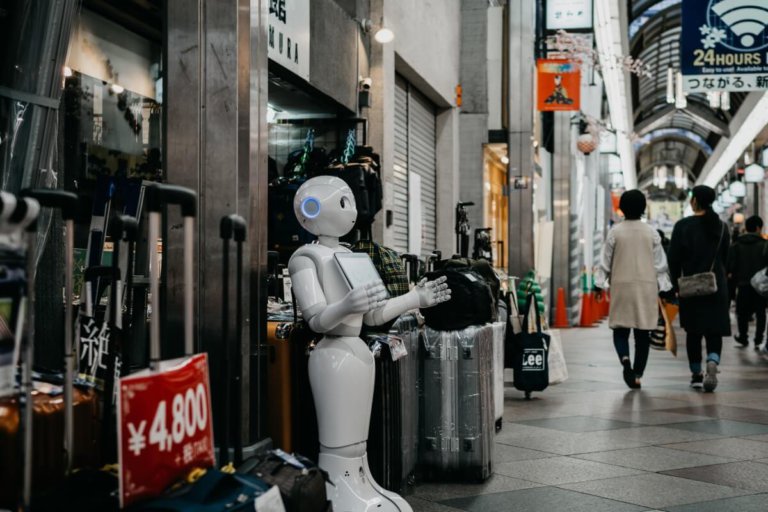
Anywhere, at any time, the capabilities and competence of Artificial Intelligence (AI) has the potential to threaten an employee’s role and an employer’s style of working.
Recent statistics surrounding the correlation between AI and employment in the Capgemini survey reveal that an increasing number of employers are turning to AI devices to heighten their company’s impact.
Interviewing more than 12,000 consumers and 1,000 executives from consumer products and retail, financial services and automotive organisations, the Capgemini Smart Talk report unravels plenty of fascinating findings.
For instance, when discussing conversational AI chat bots, 76 percent of the organisations interviewed have seen quantifiable benefits from their voice and chat initiatives, while 58 percent claimed that these benefits met or exceeded their expectations.
Compared to last year, the number of consumers using voice has shown a meaningful increase and the report emphasises that customers are increasingly preferring to use voice assistants throughout the consumer journey.
To leverage their grasp of consumer appetites, the organisations appear to be trying to find the right balance between human and robotic interactions, but this still threatens the existence of human-based roles in their companies.
“Consumers like voice assistants as they allow for multitasking, and they like chat assistants because their level of personalisation evolves over time.
“For voice, 71% said they were satisfied with their smartphone voice assistants, such as Siri. For chat, 62% said they were satisfied with the chat assistants they find on a company’s website,” the survey explains.
With AI capabilities shining within customer engagement roles, it’s easy to see how AI could be a future burden to the graduate job market and how AI could trigger a sense of urgency for universities to upskill students.

Could AI capabilities conquer all? Source: Franck/ Unsplash
Emotional Intelligence (EI) vs Artificial Intelligence (AI)
Yes, AI may be clever, but how advanced are their emotional capabilities?
They may work, sound and even look like a human, but creative and emotional skills could be their number one fault.
Getting ahead of AI with emotional shortcuts, graduates have the chance to put their independent thinking skills to the test and to outperform AI minds with their ‘humanness’.
And luckily enough for students looking to refine their emotional intelligence, employers regard EI as a competitive force against AI in the latest QS Graduate Employability report.
Titled, How Artificial Intelligence is Influencing Graduate Employability and the Global Higher Education Sector, the report delves into employers’ future expectations of AI capabilities and how graduates have the chance to counteract them.
“Overall, employers worldwide are most likely to consider analytical/quantitative skills (48%), technical skills (45%), problem-solving (32%), depth of knowledge in subject (31%), and language skills (29%) as abilities AI will be outperforming humans in by the year 2030.
“In the middle are more interpersonal skills, like communication (16%), teamwork (13%), and creativity (12%), whilst negotiating skills (8%) and leadership (9%) are generally not considered skills which AI will be capable of outperforming humans in by the end the next decade,” notes the report.
Graduates can gain speed on AI and combat the threat of automation if they focus on refining highly-developed emotional skills.

Is emotional intelligence the answer? Source: Alex Knight/Unsplash
But can we predict the future?
No one can be entirely certain about the future of work, despite various sources and reports supplying valuable predictions. We don’t even know what levels of emotional intelligence future jobs will require.
“It is a fool’s errand to guess what skills are distinctly human versus, which will be replaced by AI. Nearly all tasks will be performed differently as we ease into the fourth industrial revolution. The human competencies of creativity, resilience, and entrepreneurialism are extremely sought after in the job market and represent high-end skills that AI is not yet good at.
“Empathy and ethics are human competencies that AI cannot ‘feel’. But it is the constant change of what AI and big data can do that requires cognitive adaptability and emotional intelligence, not any one skill. AI can already be creative and resilient,” mentions Professor Gleason in the QS AI Report.
As future job roles shift along with the new digital direction, it’s difficult to tell whether emotional intelligence has the power to alter the popularity of an AI workforce…







